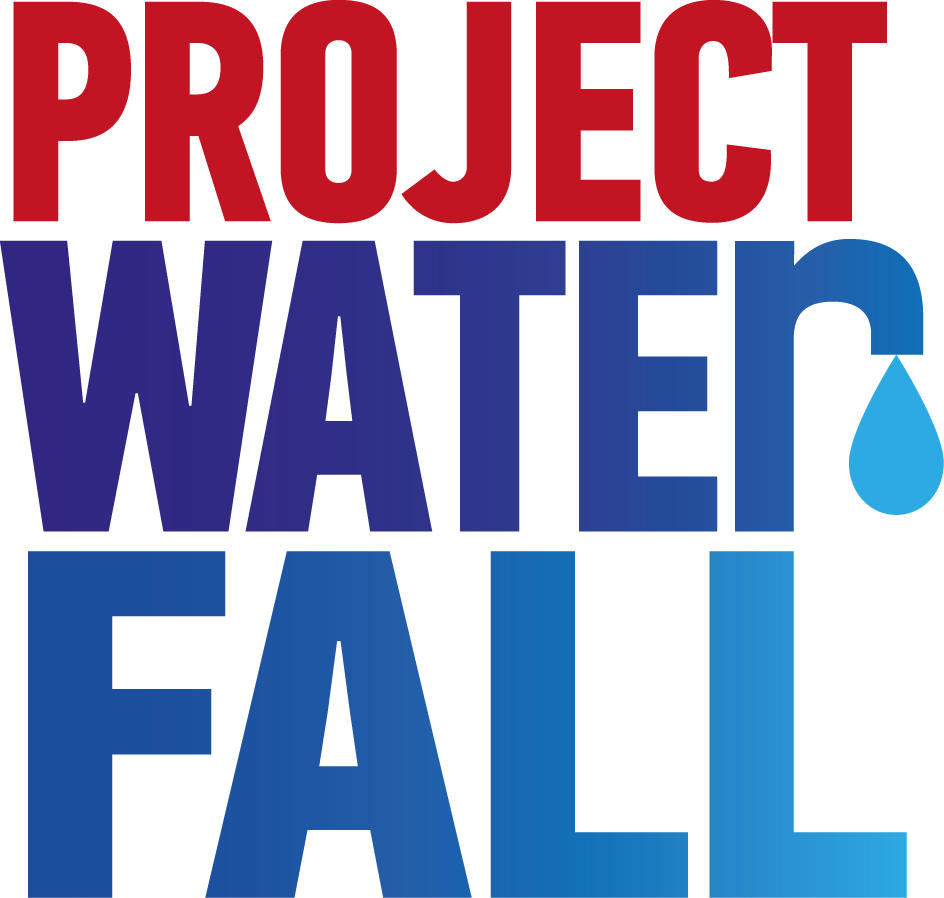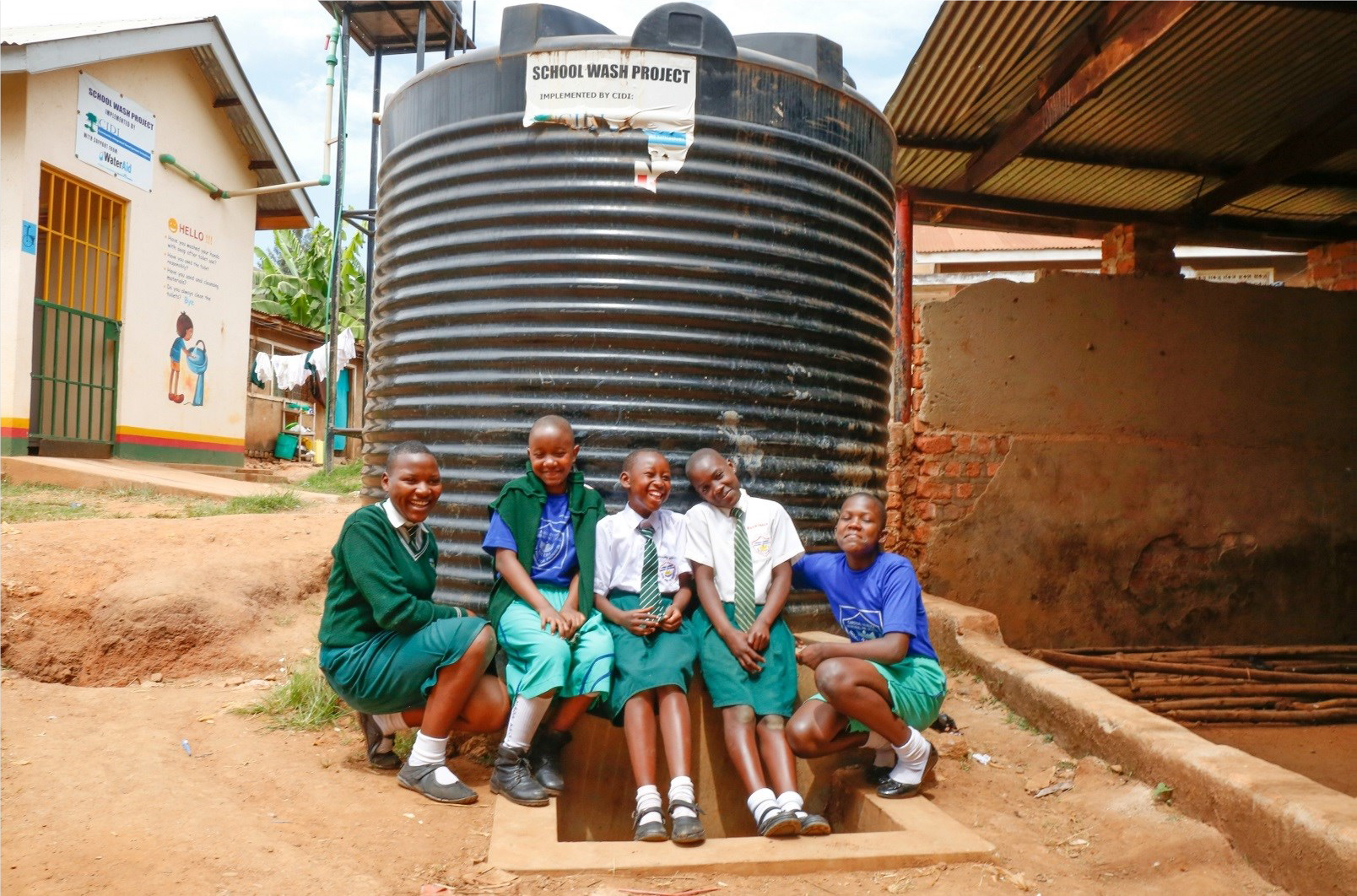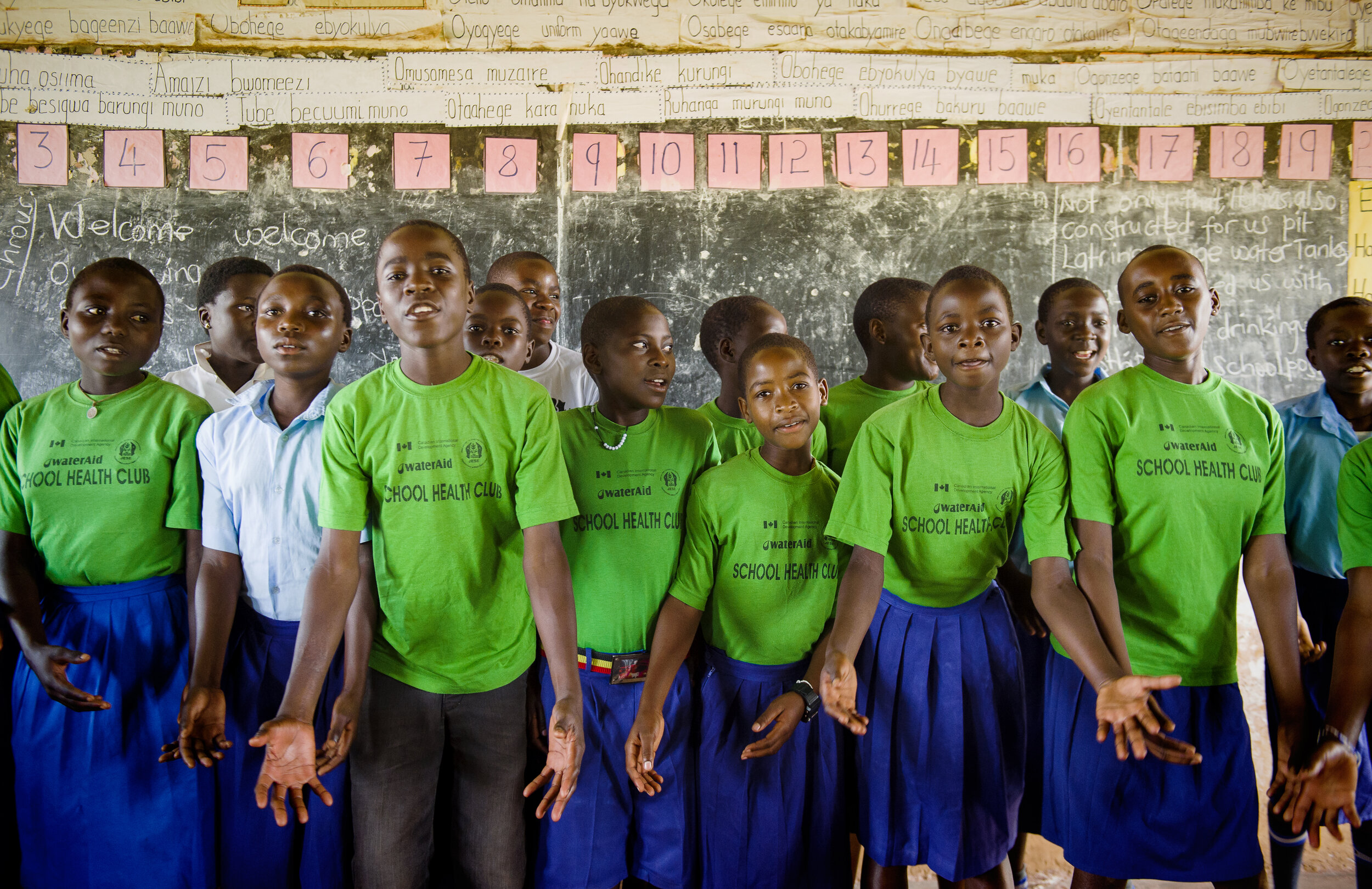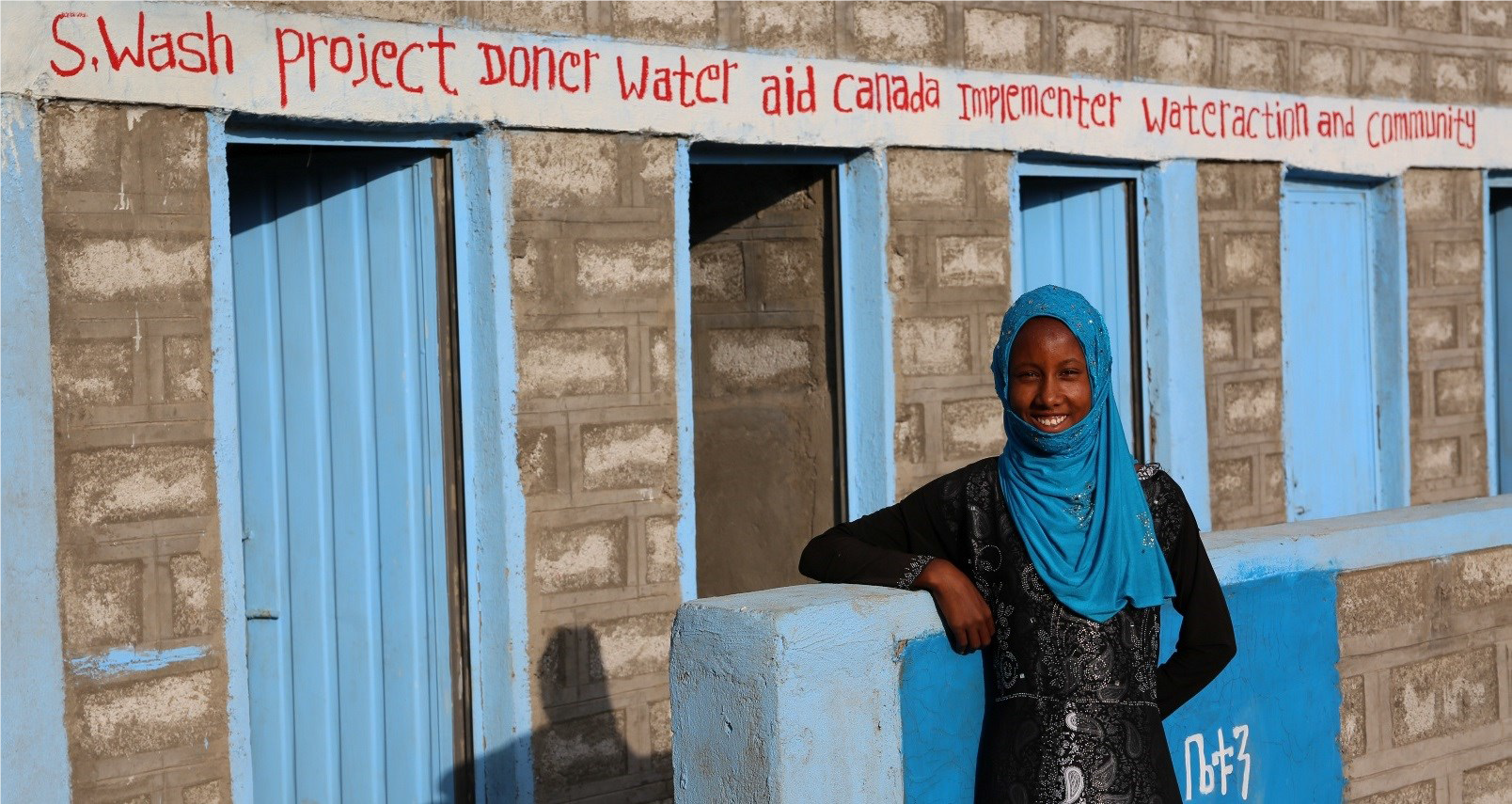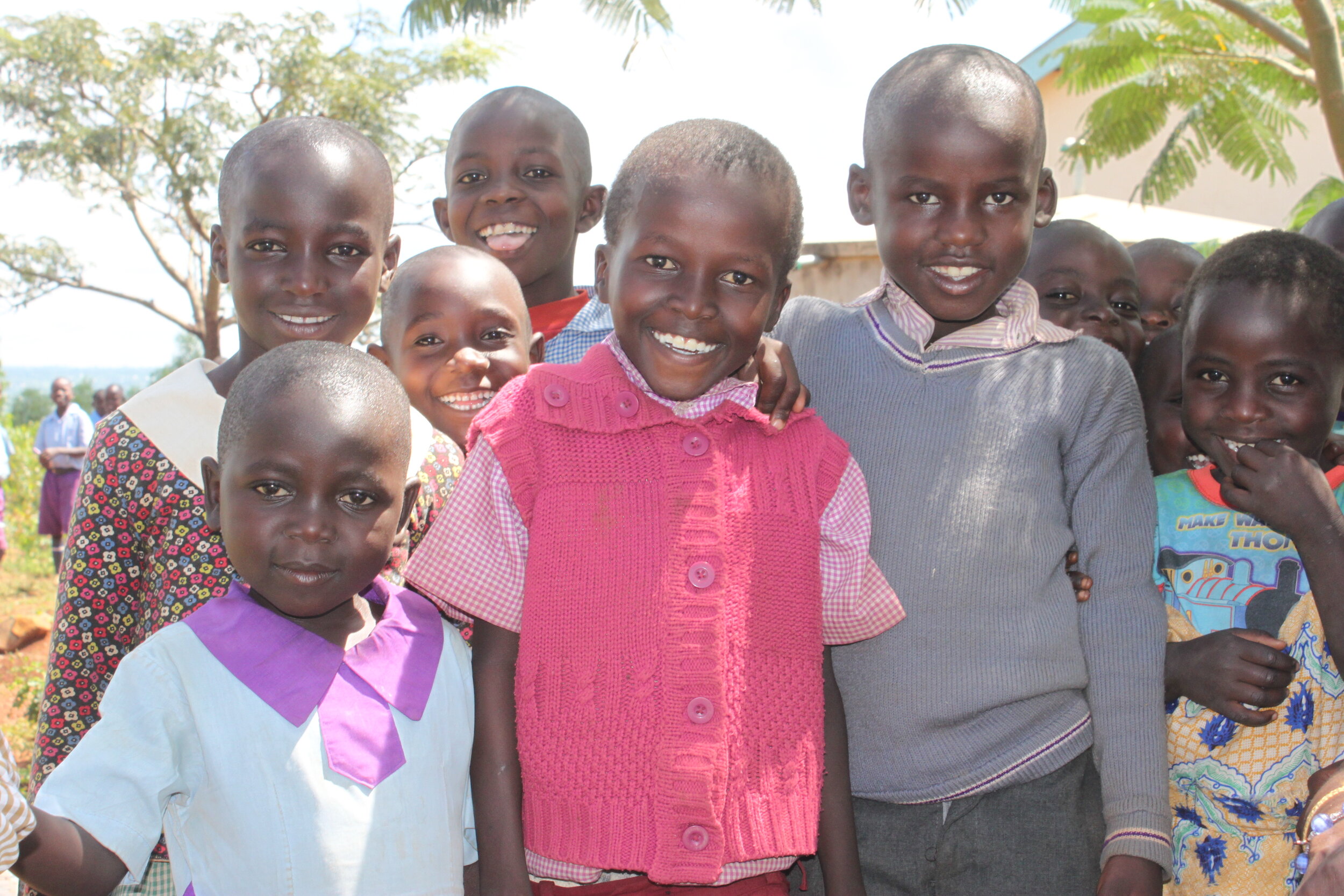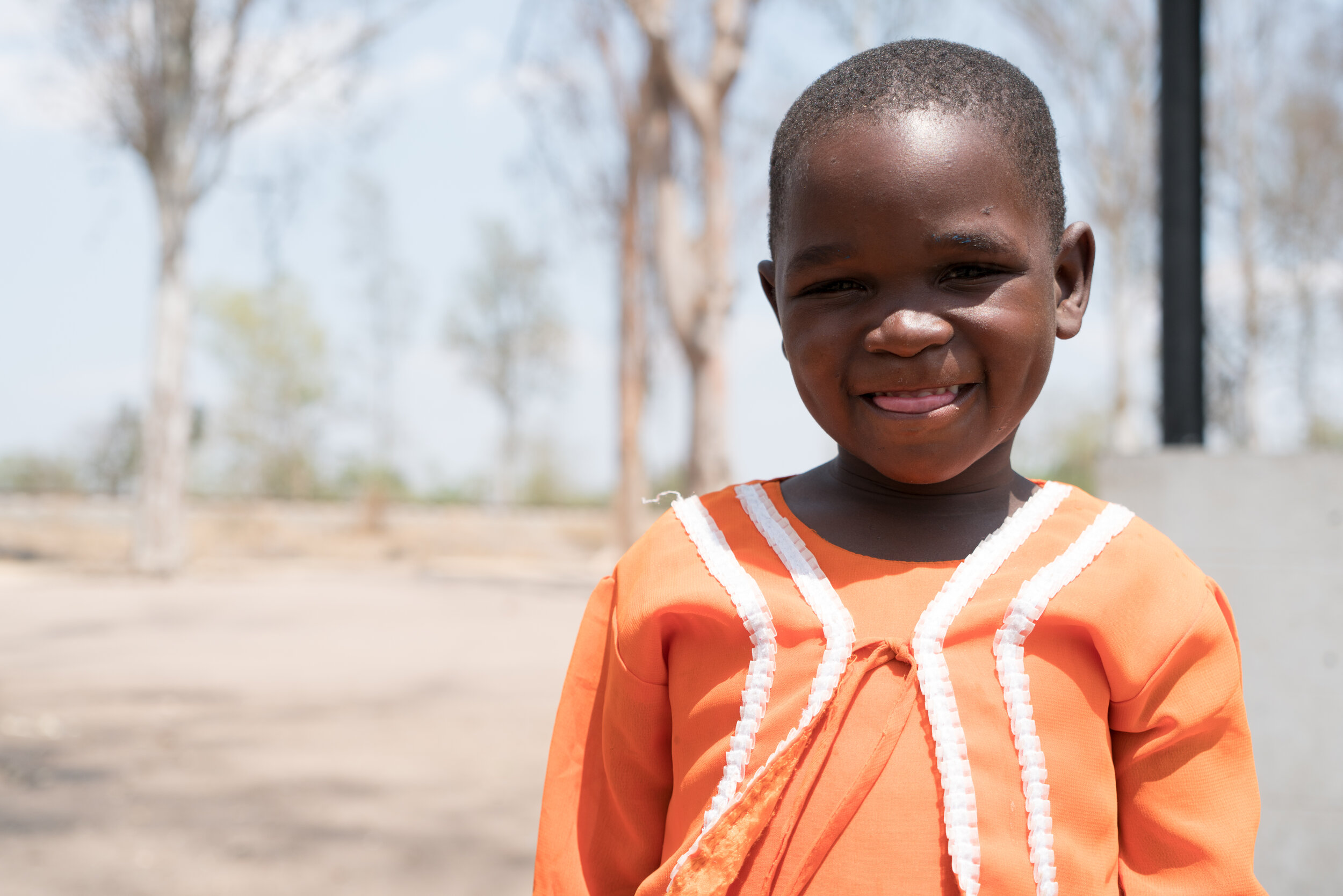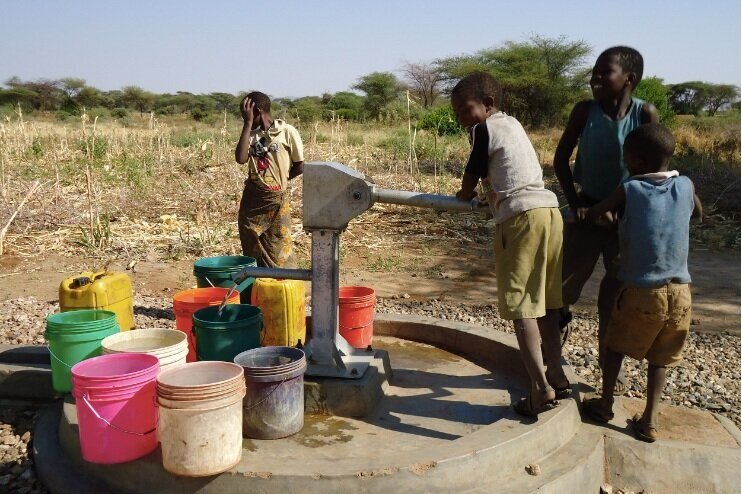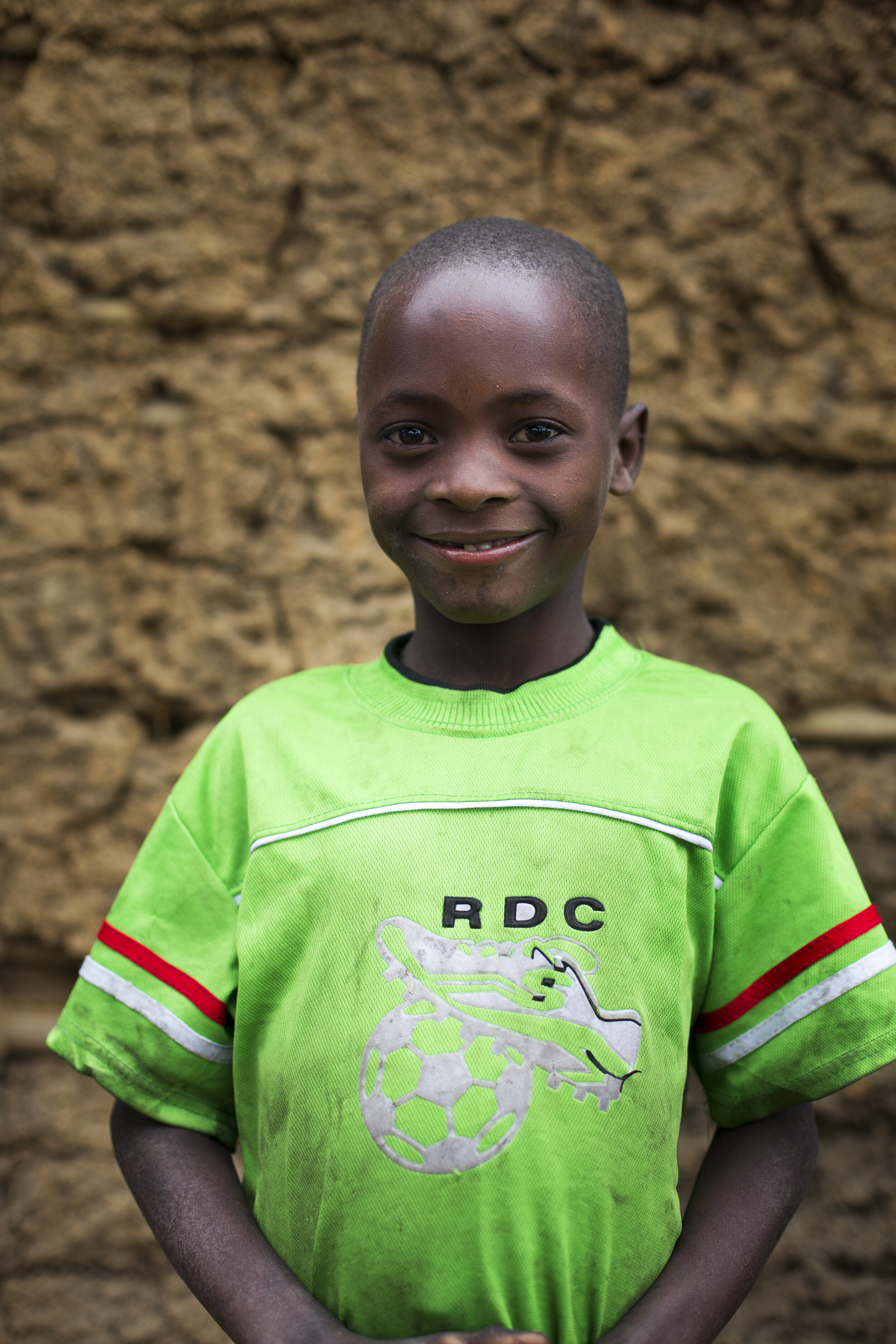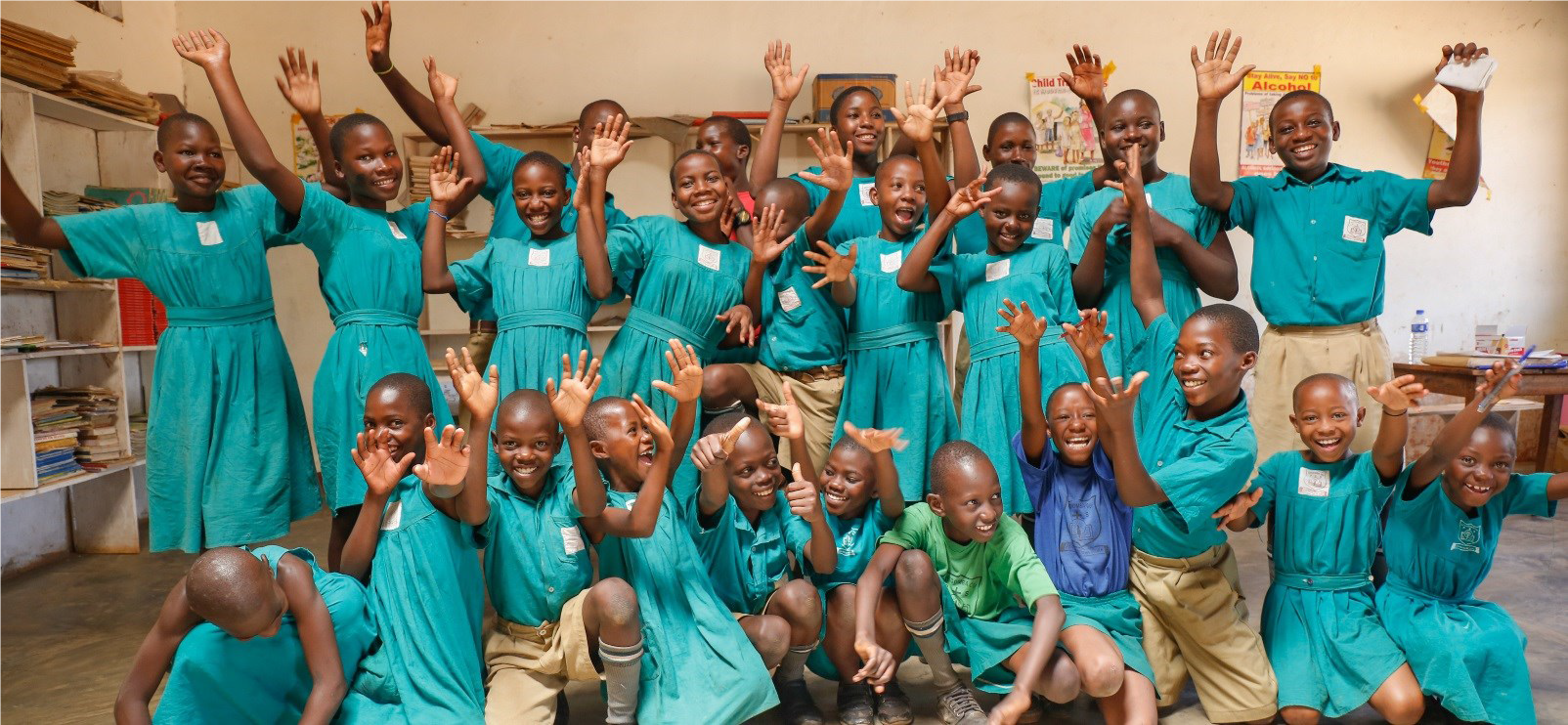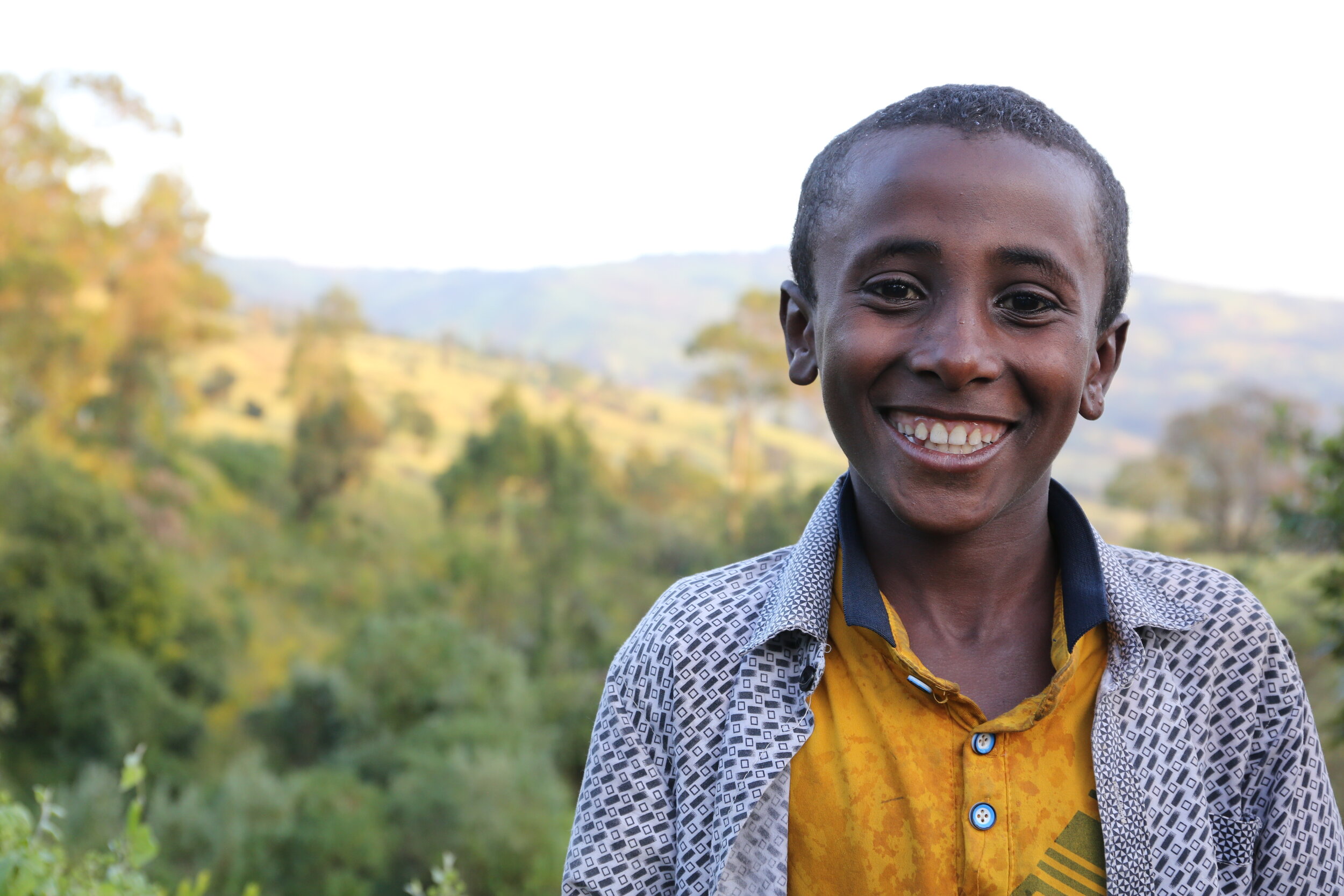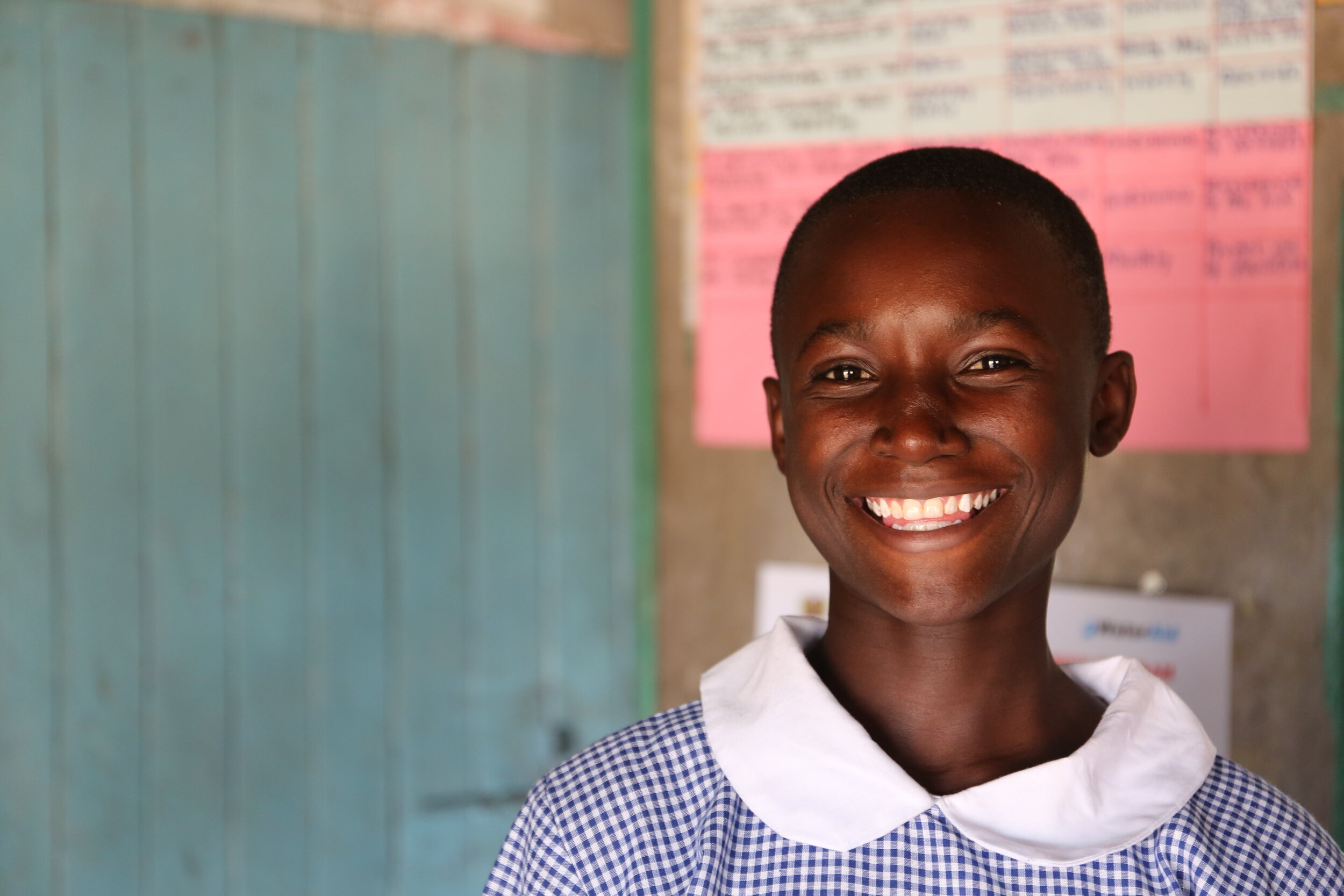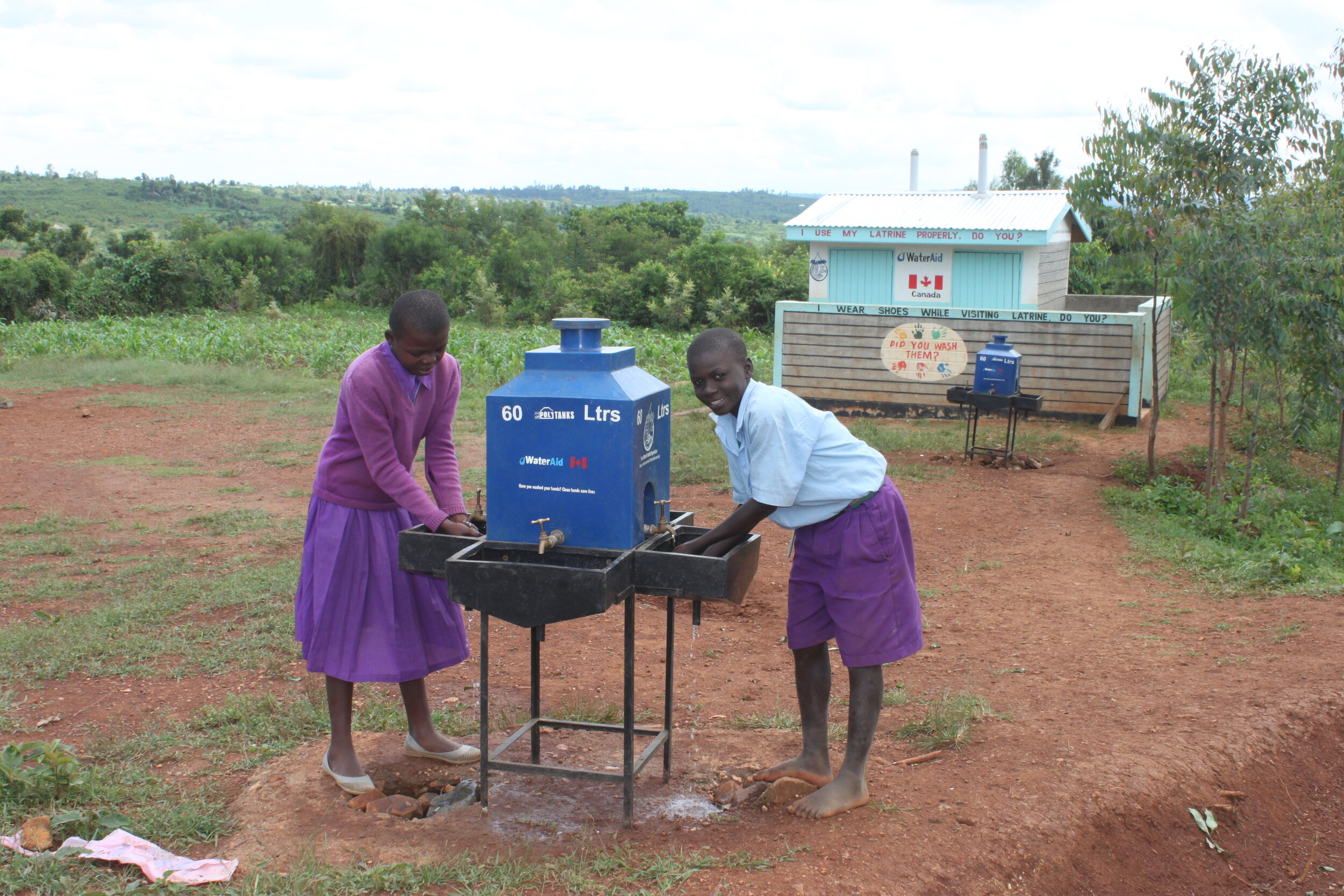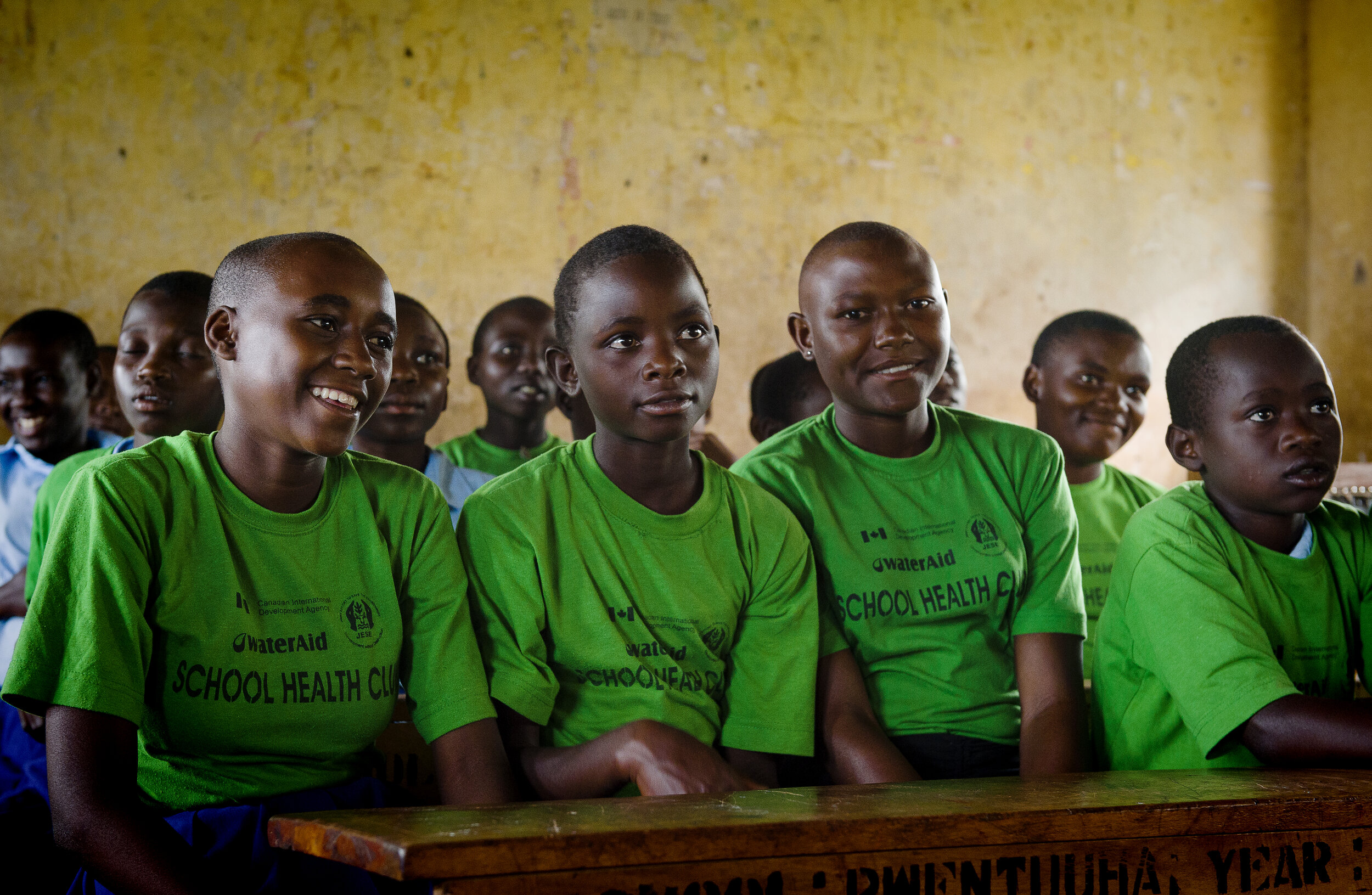Project Overview
Clean Water for Schools was a five year programme carried out by our partners WaterAidUK. This programme addressed the urgent need to improve poor water, sanitation and hygiene conditions common to many schools in sub-Saharan Africa. From 2012-2017, this project aimed to provide 120,000 children attending 170 schools throughout Kenya, Ethiopia and Uganda with access to safe water, toilets and hygiene education.
All three countries are big producers of the coffee that we love and rely on, but many communities in these countries struggle with access to clean water and sanitation.
Thanks to the money raised during UK Coffee Week and London Coffee Festival in 2017, Project Waterfall was able to support this project in its final year and change the lives of 2,462 people in these communities.
Project Stats
Start date: 2012
Status: Completed 2017
Location: Kenya, Ethiopia, Uganda
People reached: 120,000
Project Waterfall reached: 2,462 people
Delivery Partner: WaterAid
Project Waterfall's investment in 2017 directly supported 2,462 children and teachers with access to clean water and sanitation. This access leads to economic growth and a brighter future for whole communities.
improved education
For children who often arrive at school already with some level of dehydration, simply having readily accessible and clean water to drink throughout the school day can have a very positive effect on learning. With clean water available at schools, students can now stay hydrated and focus on what’s important: their education. Time spent in school is more productive and enjoyable.
women & girls
Girls no longer have to miss class during mensuration, as they can manage their periods with privacy and dignity at school. With water and decent, private toilets on school grounds, girls can manage their periods and develop feelings of confidence and self-respect rather than embarrassment or shame. They can therefore spend more time in school, allowing them an equal chance at a good education.
less Disease & infection
With private, decent toilets and handwashing facilities available, the risk of infection drops. Combined with better hygiene education, disease and illness can then be better prevented and controlled in the future. This lower rate of infection results in a dramatic reduction of absenteeism. With more children attending school, the positive cycle then starts again.
HOW WE DID THIS
Over a period of 5 years, delivery partners WaterAid worked hard with the local communities to construct secure and safe water supplies at schools for drinking, cooking and cleaning and the construction/rehabilitation of safe, clean and private toilets. Project Waterfall contributed to the final year of this project.
All 170 schools now have access to clean water.
For schools based in or near urban centres, pipeline extensions to the existing municipal water lines were built, and water storage tanks to ensure a constant and adequate water supply were installed.
To take advantage of the rainy season in Uganda, rainwater harvesting tanks were the answer. Similar rainwater harvesting facilities were installed at the rural Kenyan and Ethiopian schools.
For schools based in Woliso, Ethiopia, boreholes were drilled and wells fitted with hand pumps were built.
In Alelalo village in Kalu, Ethiopia, where a natural spring was located near the school, a 1.2km pipe line extension to bring the spring water to the school was built. The piping connects the water supply to the shower room, the handwashing facilities and to the water tap stand.
Construction or rehabilitation work on gender sensitive and private toilet blocks at all schools was completed.
Hand washing facilities with multiple taps were also constructed at all schools and are equipped with soap and water. It is estimated that handwashing stations with soap are the most cost effective intervention in the developing world, reducing Diarrhoeal disease by up to 50%.
““Now that we have two new rain water harvesting tanks, life at school is easy because we no longer have to miss classes or risk crossing the main road to collect water from the community borehole.””
Sustainability and education
Hygiene education is essential in creating awareness of proper hygiene practices and encouraging healthy behaviours. This will be done through Health Clubs that empower students to become leaders and create lasting practices for good hygiene. Each school will have a dedicated health club to promote hygiene awareness. This is achieved through the use of the arts (poems, drama, song etc.) to encourage healthy behaviours.
In many cultures menstruation is a taboo subject and the resulting stigma affects women’s self esteem and ability to participate in society. The School Health Clubs that were established as part of the programme are playing a critical role in breaking the silence and promoting open discussion of menstrual hygiene. This allows activities such as the making of reusable sanitary pads to be practised, replacing the shame of menstruation with pride and confidence.
Access to clean water, decent toilets and hygiene education on school grounds helps to unleash a powerful cycle of opportunity, with healthy children at the heart of it. It helps children realise their full potential and prepares them for a healthy and prosperous adult life.
As well as this, the lessons the children are getting in school about sanitation and hygiene are setting in motion a much larger social change in the communities they come from. Many students have been able to convince their parents to dig toilets at home or adopt more hygienic habits. And while the programme may be over, its impact goes on and will be felt for generations to come.
the future
"I feel our children are now in a safe place where they won't suffer from disease. They can now learn comfortably and successfully. This is the assurance I am giving to parents: Let your children now come and join us - with clean water and toilets it is a safe space for your children to learn." - Francis, Deputy Head Teacher at Wangu Primary School, Kenya
The effect of clean water, sanitation and hygiene education will have a ripple effect in years to come. Most of the 120,000 children whose lives have been touched over the five years, will marry and have children of their own. These children will grow up healthier as they benefit from and then assume life-long sanitation and hygiene habits themselves. They in turn will pass on these habits, and continue the virtuous cycle.
One key element in producing results, beyond the actual successes in providing clean water and proper sanitation, is the empowering effect it has on communities. With a direct stake in the projects (through volunteer labour, materials or funding) communities rightfully assume ownership of the initiatives, sharing in the work, in the celebration of their success and in their ongoing commitment to maintaining their new water and sanitation infrastructure. While the Clean Water for Schools programme is now complete, empowered communities and this social cohesion will ensure that the impact of our work will be felt for generations to come!
We continue to have a partnership with WaterAid, and look forward to future collaborations.
